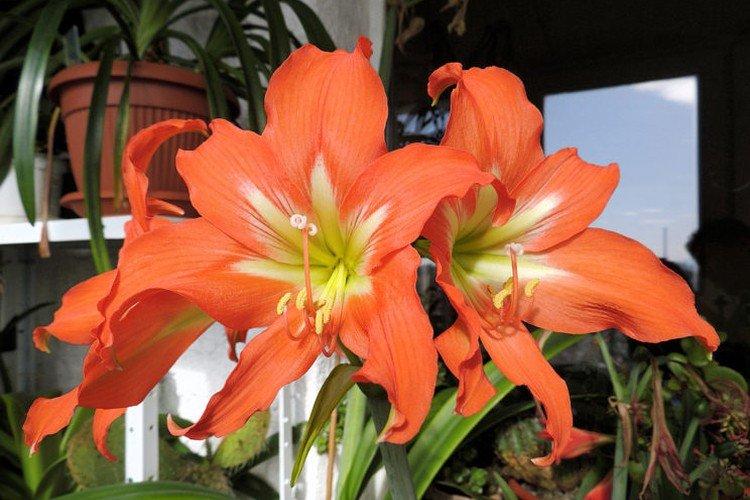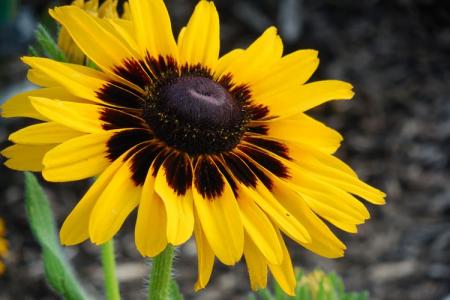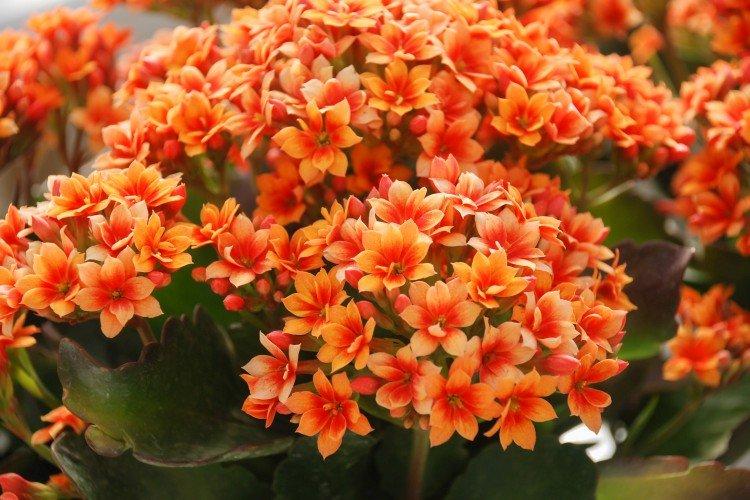
Orange is the color of fire, sun, warmth and inexhaustible energy. It invigorates, gives strength and just cheers you up. Orange flowers have the same magical effect. And to make it easier for you to navigate in their variety, catch a large catalog with photos and names!
Garden orange flowers
The orange flowers in the garden contrast wonderfully with the vibrant greenery. They are completely self-sufficient in mono compositions, but at the same time they go well with other plants.
Marigold
Well, you will surely recognize them always and everywhere! In addition to unpretentiousness, versatility and the ability to survive in almost any conditions, marigolds are also very diverse.
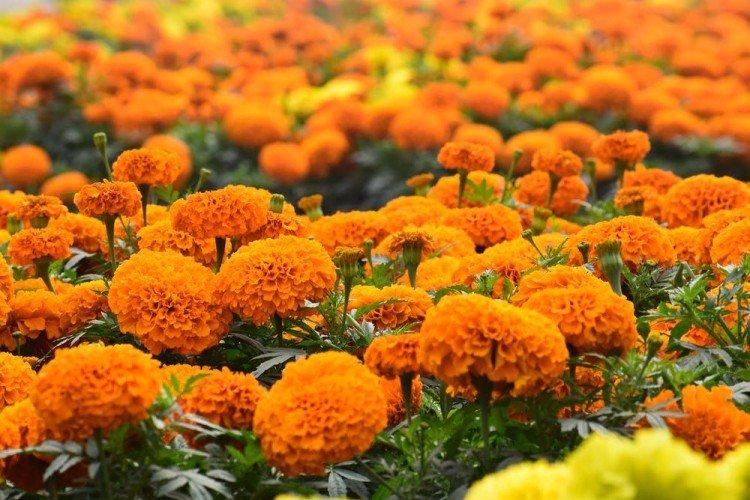
Iris
Irises are not only all shades of blue and purple, they have a surprisingly rich color palette. Orange varieties attract with variegated petals.
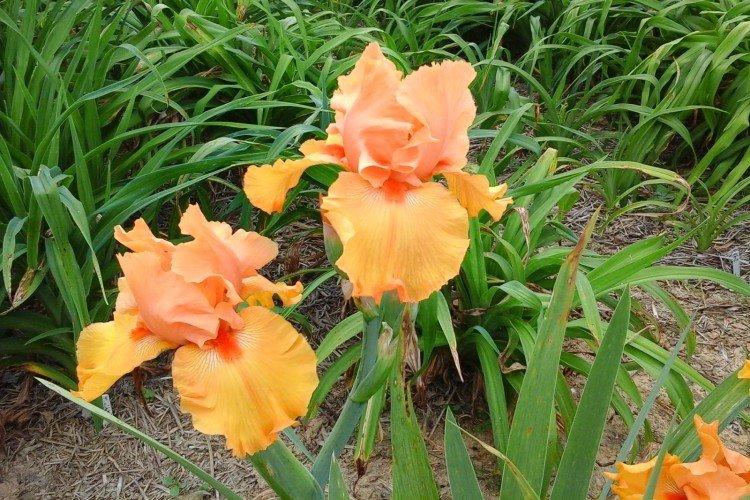
Viola
Orange varieties of viola look even brighter due to the fact that its petals are always painted in at least several shades. Viola is good in flower beds, in vertical gardening and in any composition.
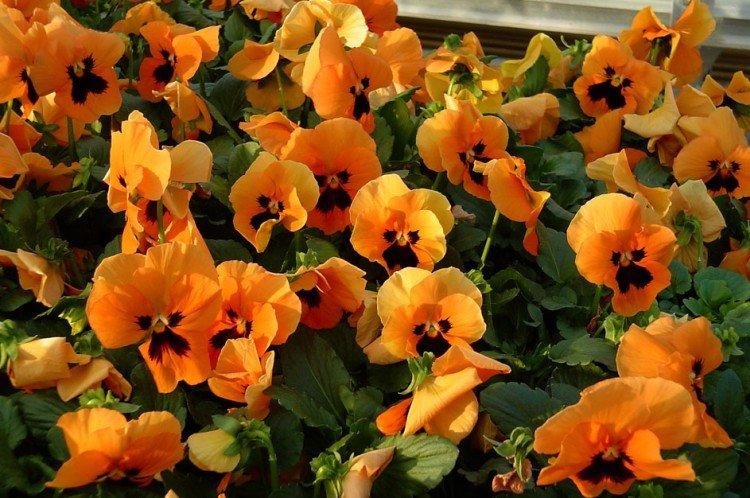
Bloodroot
Tall shrubs of Potentilla grow up to 1.5 m, depending on the variety. The buds of a rich shade are collected in large paniculate inflorescences, but sometimes species with single flowers are also found.
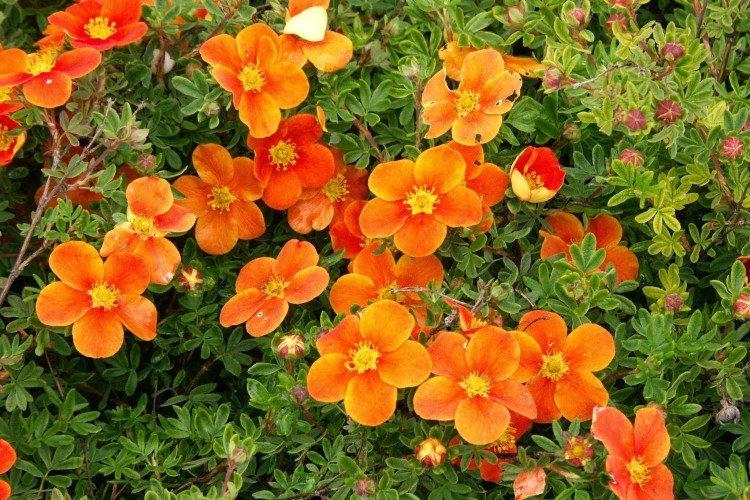
Gaillardia
A bright representative of the Aster family is often found in flower beds and along borders. The tall, almost one-meter varieties with two-color petals are especially spectacular.
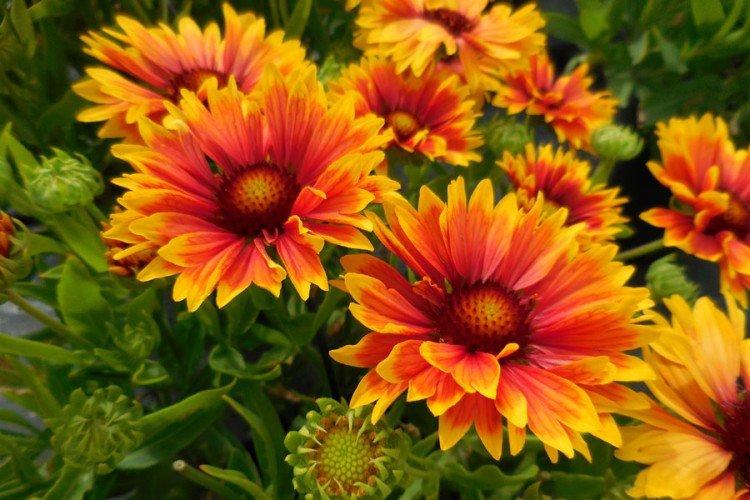
Gazania
It is also called African chamomile, and it really looks like it. Only now the inflorescences are very large and bright, with a spectacular silky surface of the petals.
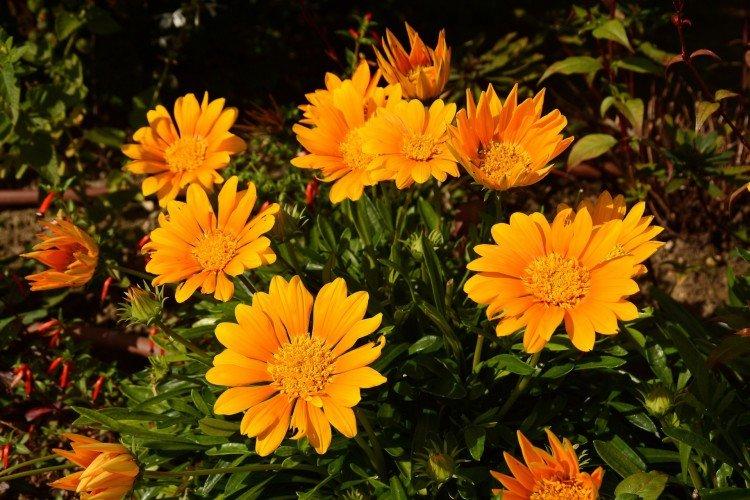
Calendula
This is the flower that this collection could not do without! Calendula is not only beautiful, but also very useful, because its extract is actively used even in official medicine.
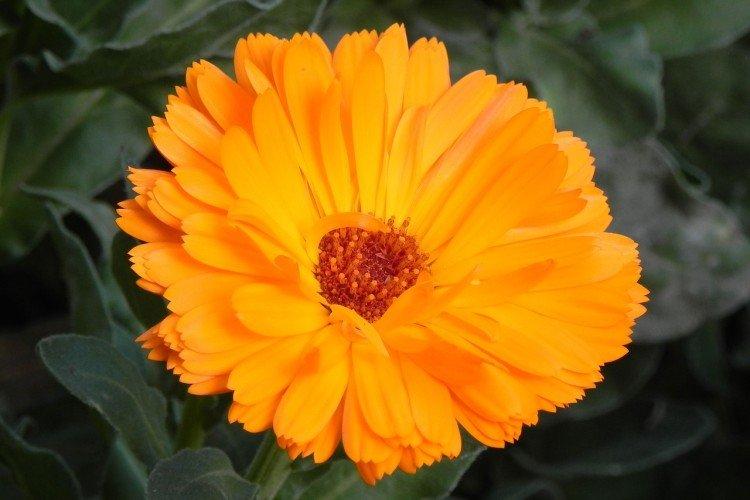
Day-lily
The daylily just seems very exotic and delicate. It easily withstands any adverse conditions, is completely undemanding and blooms in very large one-day buds.
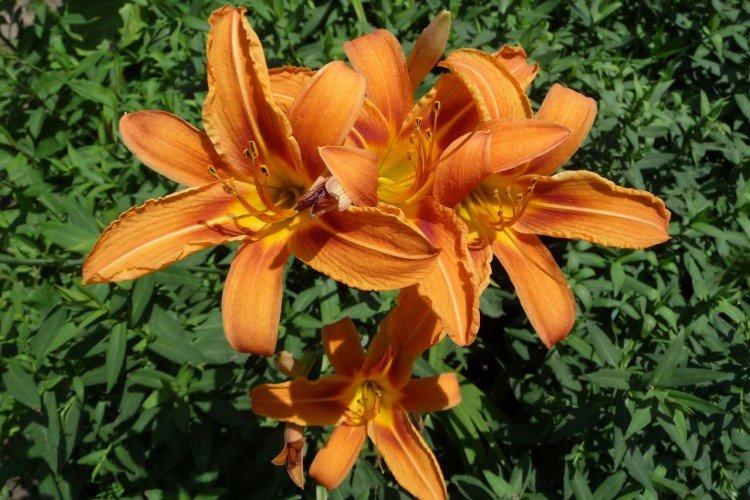
Nasturtium
Nasturtium, with its funnel-shaped bells, is a strong and tall vine that can be grown in very different ways. There are ordinary and terry varieties.
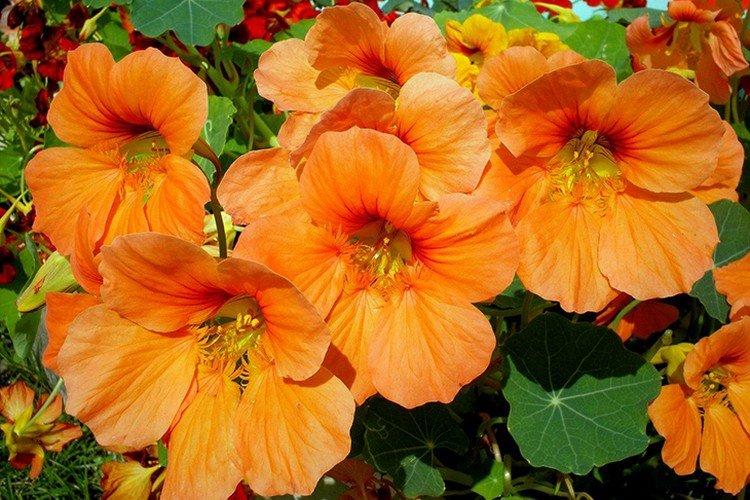
Eschsholzia
The second name of this plant in our latitudes is the California poppy, and they are really similar. On sunny days, Escholzia opens its buds with petals resembling the fragile wings of a butterfly.
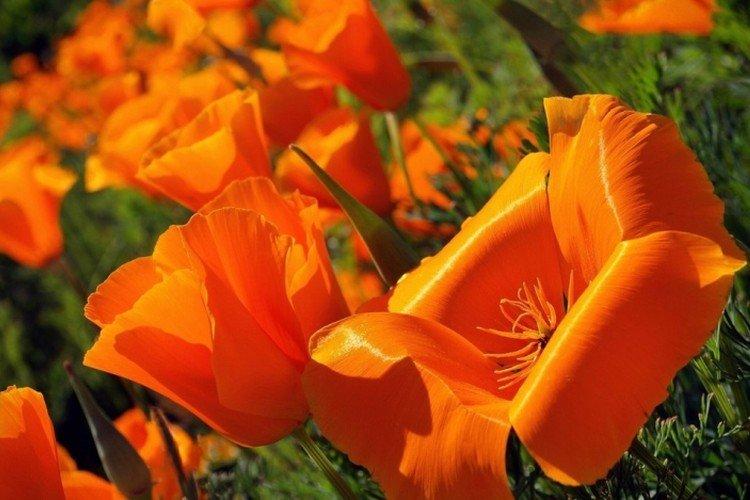
Zinnia
The Mexican flower is impressive in its variety. The height of different species varies from 20 cm to 1 m. Fluffy inflorescences bloom in the first half of summer.
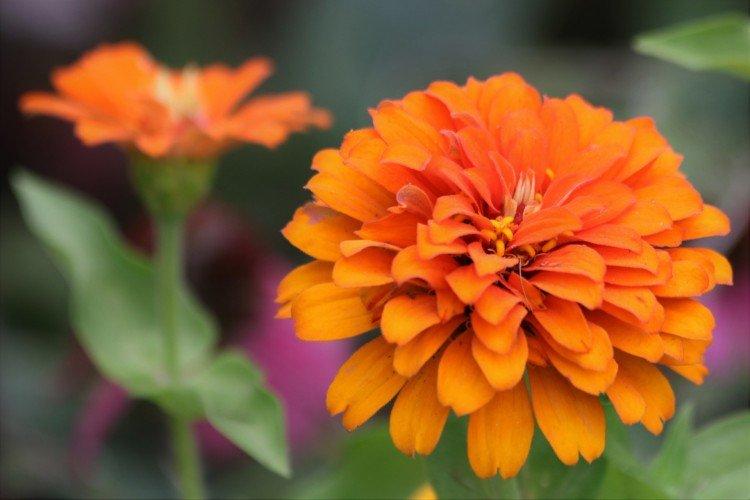
Gelichrizum
Perhaps you know this flower called the immortelle. Gelikhrizum is not only spectacular and unpretentious, but also does not fade from late spring until October.
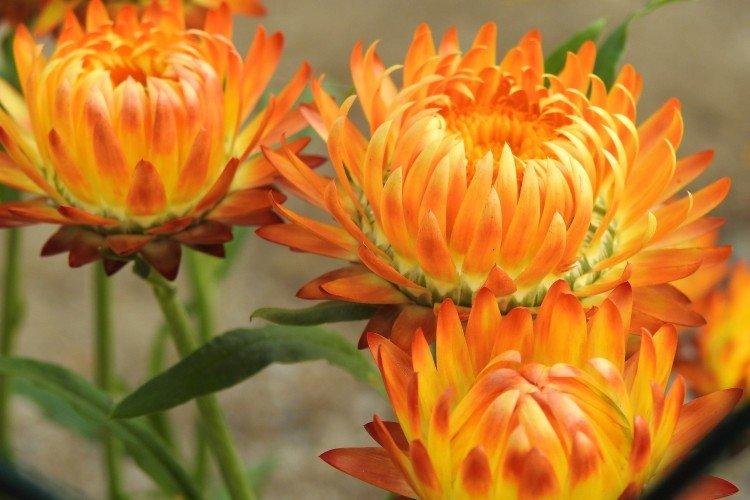
Gabrantus
A bulbous garden culture about 50 cm high resembles a crocus a bit. Up to 3 buds with a diameter of about 5-6 cm bloom on each peduncle.
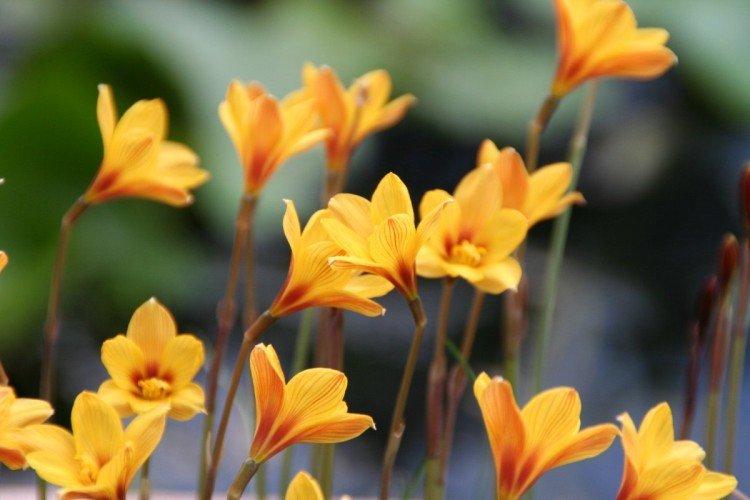
Nemesia
This African flower is especially loved by gardeners for its continuous and relentless flowering. The first buds bloom in early summer, and then nemesia will decorate the site until frost.
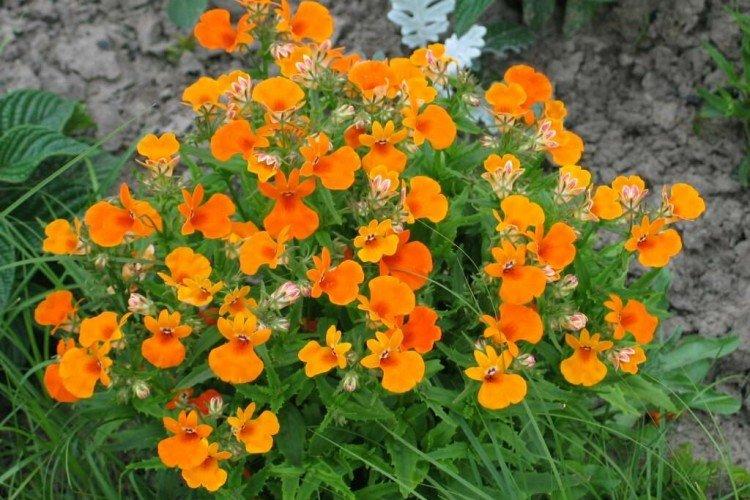
Gelenium
Another classic representative of Asteraceae with bright orange inflorescences-baskets. Gelenium can be easily identified by a very convex spherical center of a darker shade.
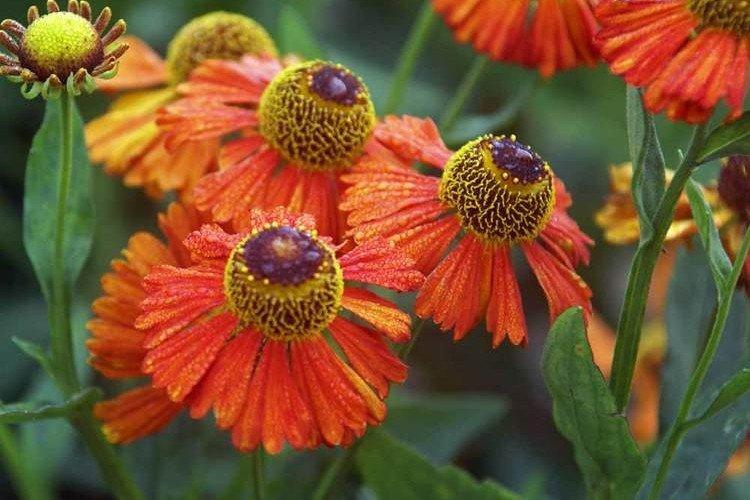
Indoor orange flowers
Orange flowers on the windowsill fill the room with a sense of coziness and home warmth. We will tell you which species you should pay attention to first of all!
Clivia
Clivia belongs to amaryllis, but instead of a bulb, it has a powerful rhizome. Oval glossy leaves perfectly set off orange inflorescences.
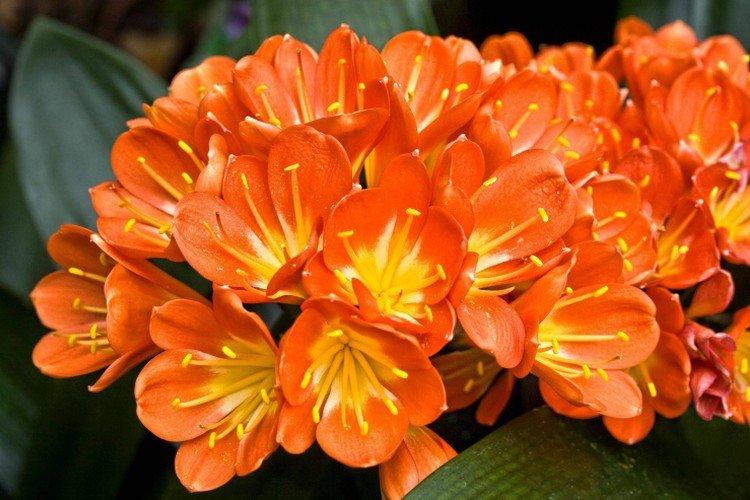
Begonia
There are more than one indoor orange begonia, but we advise you to pay attention to the view of Elatior. It is a tuberous hybrid that blooms from autumn to all winter.
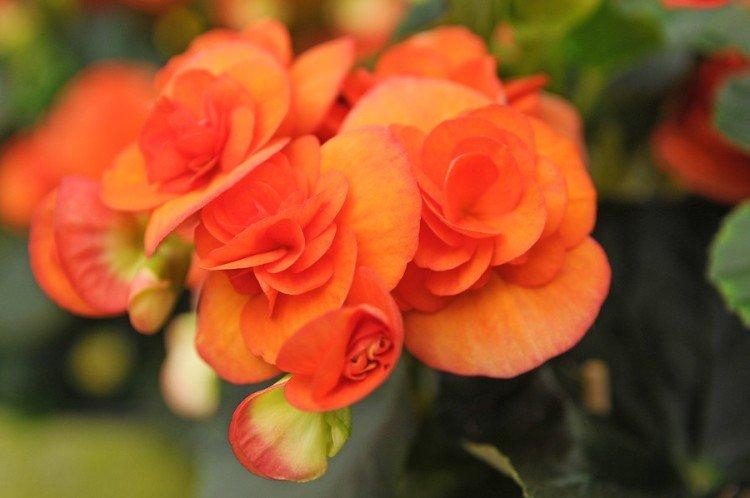
Strelitzia
An amazingly beautiful indoor flower, which not all growers know about. The original inflorescences resemble a fabulous bird of paradise.
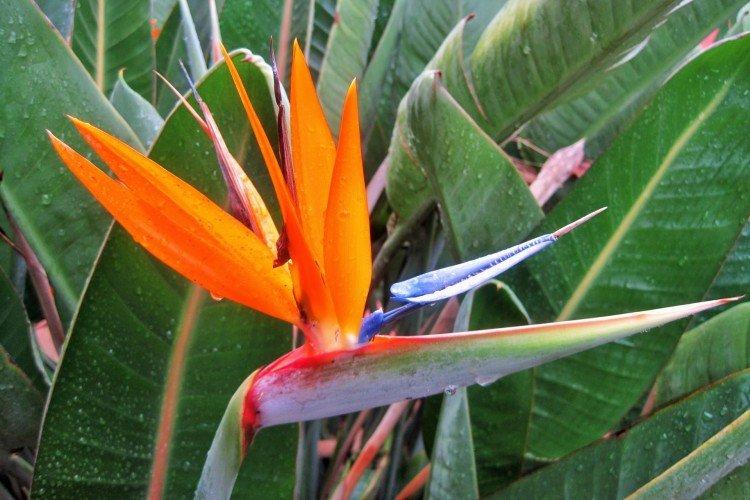
Streptosolen
Graceful buds of streptosolen are collected in voluminous bunches of inflorescences. It is a climbing shrub that grows beautifully on any support with enough heat and light.
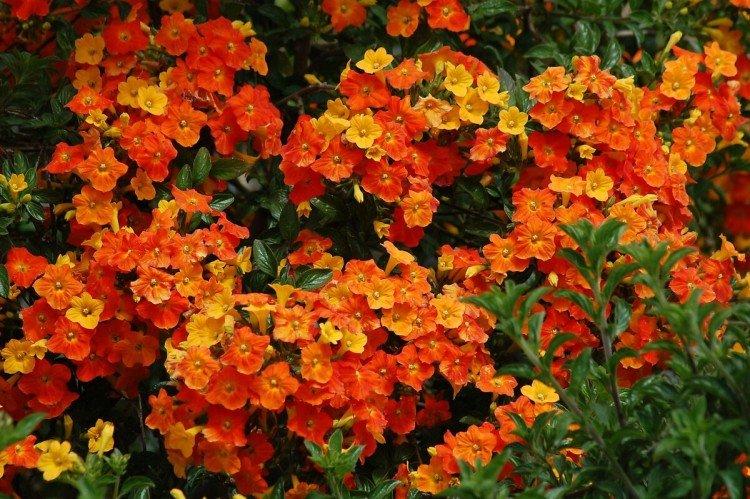
Crossandra
The charming tropical shrub attracts with shiny, wax-like leaves and dainty orange blossoms. Crossandra blooms in the room almost all year round.
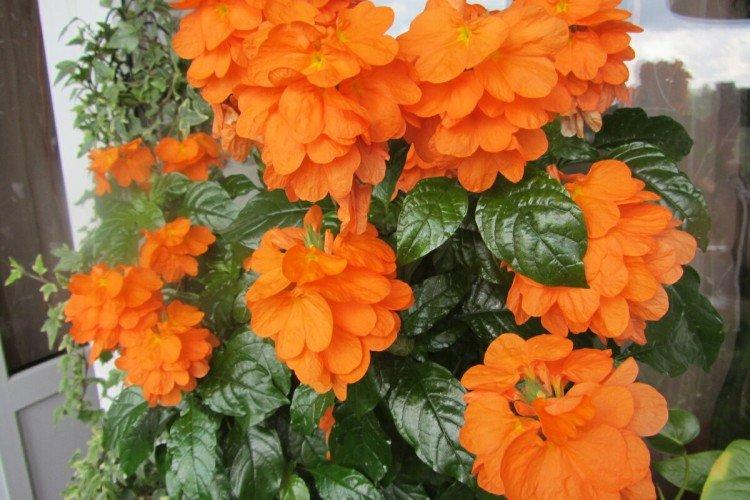
Ayloster
Decorative flowering cactus attracts with its large funnel-shaped buds of rich orange color. With proper care, the Ailoster blooms twice a year.
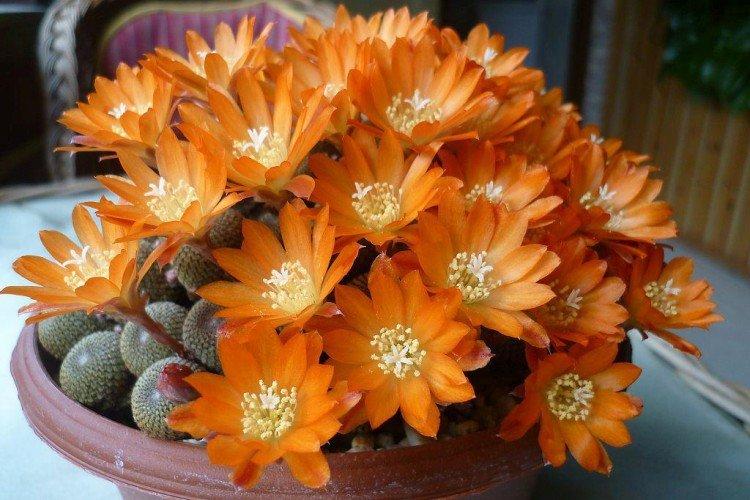
Lantana
The variegated lantana blossoms have collected all shades of orange, yellow and red. A compact rounded bush grows up to 50 cm and blooms for six months from the end of spring.
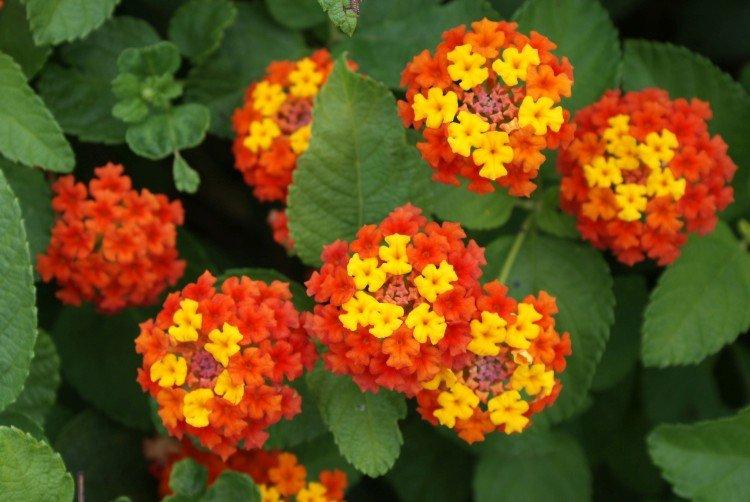
Saffron calathea
This type of calathea is decorative in all its forms. There are beautiful dark green leaves, and bright orange flowers of a bizarre shape on long peduncles.
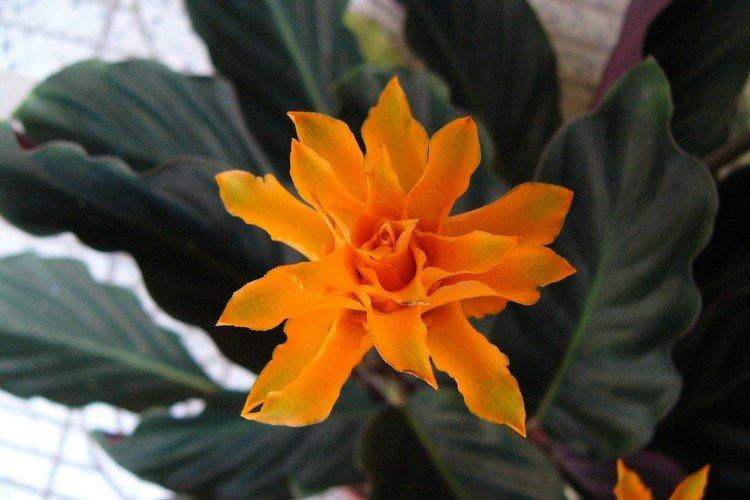
Kalanchoe Blossfeld
One of the most popular types of decorative Kalanchoe pleases with a variety of shades. There were also bright orange varieties among them. It is an excellent choice for partial shade cultivation.
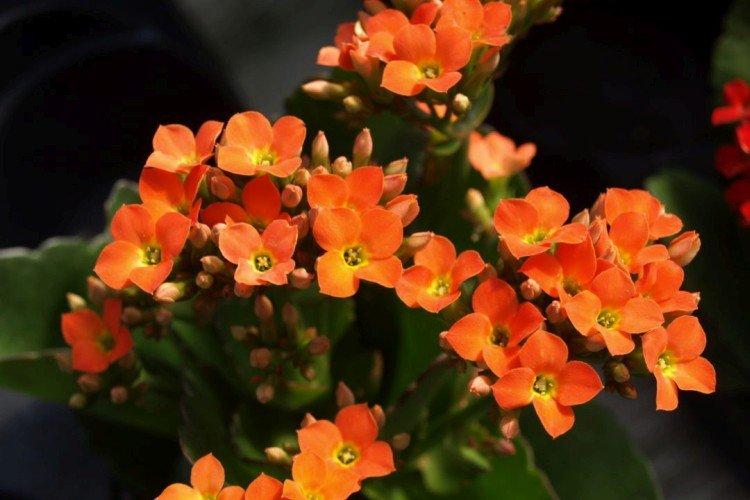
Abutilon
Abutilon is another flowering houseplant whose varieties have collected all shades from pale yellow to red and crimson. Of course, there are also orange ones among them.
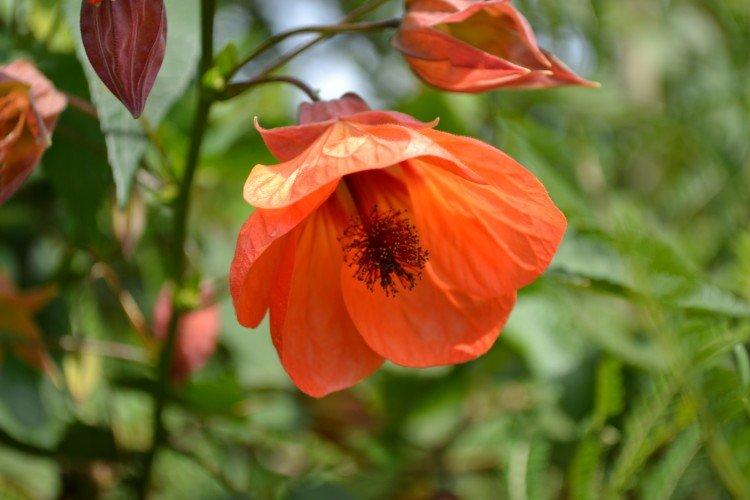
Hypocyrt
An unusual ampelous plant blooms every spring. A neat shiny bush at first glance may even seem artificial. Hypocyrta loves frequent watering and high humidity.
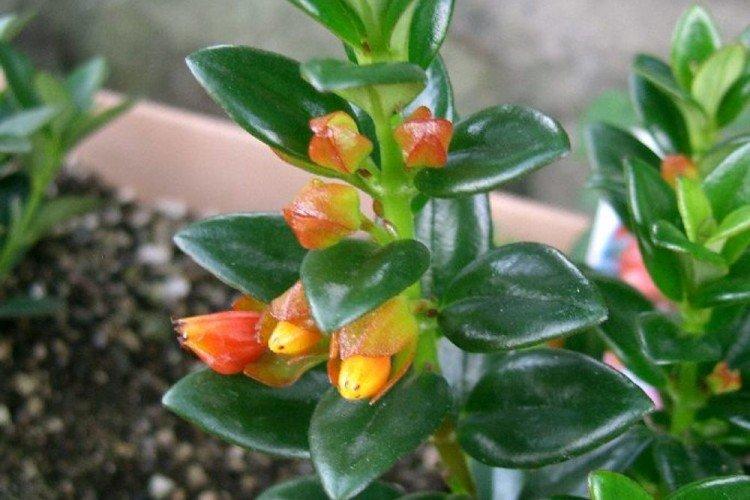
Epidendrum
This is a lush, but not too capricious orchid. More than a dozen bright voluminous inflorescences bloom on one bush at the same time.
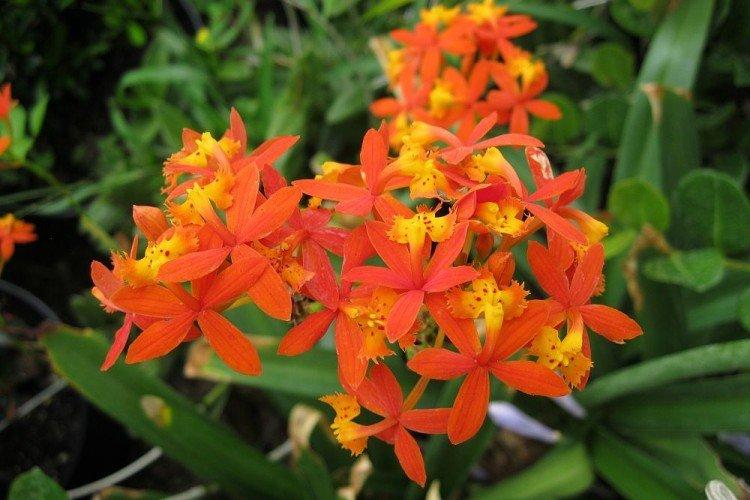
Nematantus
An exotic guest from South America has settled in our apartments for a long time. But remember that nematanthus is a heat-loving plant that needs a winter dormant period.
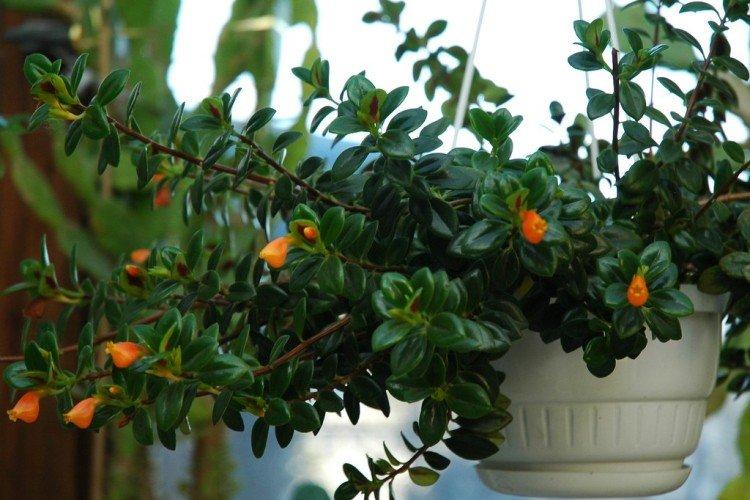
Thunbergia
Thunbergia immediately catches the eye precisely because of its large orange flowers with a dark contrasting center. For the summer, you can safely take it out onto the balcony or outside.
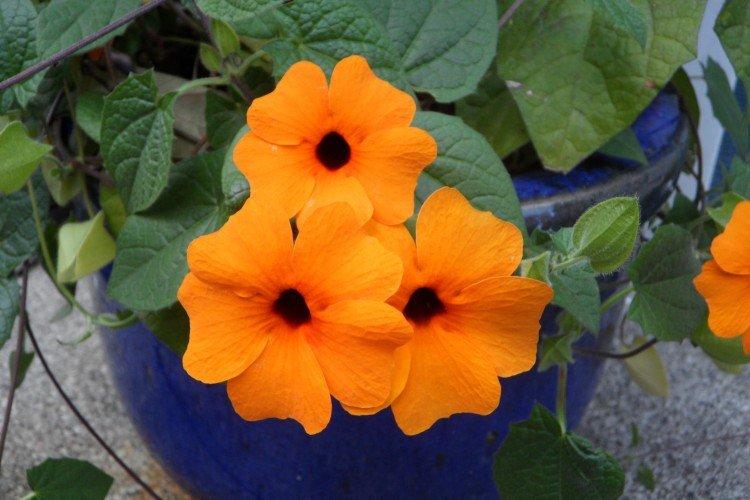
Hippeastrum
Hippeastrum is a very beautiful bulbous flower for growing in a room. There are several hundred varieties, including orange and bicolor.
